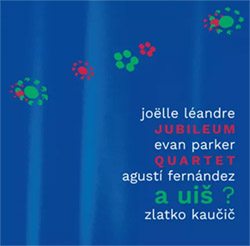
Celebrating 40 years of Zlatko Kaucic's professional career as a musician, the quartet of Joelle Leandre on acoustic bass, Evan Parker on tenor saxophone, Agusti Fernandez on piano, and Zlatko Kaucic on drums & objects are heard live at the 23th Cerkno Jazz Festival in 2018 for an extended and stunning set, from the most active to the most introspective of moments.
Out of Stock
Quantity in Basket: None
Log In to use our Wish List
Shipping Weight: 4.00 units
Sample The Album:
Joelle Leandre-acoustic bass
Evan Parker-tenor saxophone
Agusti Fernandez-piano
Zlatko Kaucic-drums, objects
Click an artist name above to see in-stock items for that artist.
UPC: 5906395187652
Label: Not Two
Catalog ID: MW 1005-2
Squidco Product Code: 29385
Format: CD
Condition: New
Released: 2020
Country: Poland
Packaging: Cardboard Gatefold
Recorded at the 23rd Cekno Jazz Festival, in Cerkno, Slovenia, on May 18th, 2108, by Borut Celik.
Celebrating 40 years of Zlatko Kaucic's professional career as a musician, the quartet of Joelle Leandre on acoustic bass, Evan Parker on tenor saxophone, Agusti Fernandez on piano, and Zlatko Kaucic on drums, objects are heard live at the 23th Cerkno Jazz Festival in 2018 for an extended and stunning set, from the most active to the most introspective of moments.
Artist Biographies
• Show Bio for Joelle Leandre "Joëlle Léandre is a famous French Bassist and is known for her collaborations with other musicians in the field of improvised music. Born in France on September 12th, 1951, she made her music debut in 1984 with Les Douze Sons. Her childhood was filled with music, and she was particularly interested in the piano during her early years. In her later years, she developed an interest in double bass, which won her many honors and scholarships during her education. Her double bass teacher Pierre Delescluse encouraged her to apply to the Conservatoire National Superieur de Musique de Paris, where she was formally trained and noticed for her talent in the bass. Her outstanding musicianship took her to the United States and to the Centre for Creative and Performing Arts in Buffalo through a scholarship. In the United States, she expanded her network and met some of the best composers, such as John Cage, Giacinto Scelsi, and Morton Feldman. Among them, John Cage greatly influenced her music and compositions. Her time in the United States also enabled her to experience downtown New York music, which was another significant influence that led to her continued involvement in the field of improvised music. Some of her notable collaborations in the field of contemporary music are with Pierre Boulez, Merce Cunningham, John Cage, and Giacinto Scelsi. Among them, John Cage and Giacinto Scelsi were the biggest influences in her life and music. In an interview, Joëlle Léandre said that John Cage was her spiritual father and changed her perception of sound and music. In another interview, she tells how Giacinto Scelsi allowed her to discover her own music and how his music transported her into a new world of improved consciousness. In the field of jazz music, she collaborated with Derek Bailey, William Parker, and Sebi Tramontana. Her music was owned and distributed by different music labels, including FMP, Leo, RougueArt, and Red Toucan. Some memorable songs and albums she released throughout the years include Instant Replay, Les Douze sons, Trios, Sweet Zee, Frerebet, Joelle et Tetsu, Philippe Fenelon, Voyages, etc. Some of the recent releases include Can You Hear Me and Unleashed. She has also performed live at the Tampere Jazz Festival twice, where popular international artists compete with each other. Joëlle Léandre is also the member of European Women's Improvising Group (EWIG). The group evolved from the Feminist Improvising Group, and Joëlle Léandre joined the group in 1983. In the early 1900s, she co-founded Les Diaboliques with Irene Schweizer and Maggie Nicols, who were her long-time musician friends. Besides that, she also teaches several classes in prestigious universities about contemporary and improvised music. She has lived in France, Germany, and U.S during her lifetime, teaching at academic institutions in the religions and playing concerts. In 2002, she was invited to Canada as a visiting professor for music and composition." ^ Hide Bio for Joelle Leandre • Show Bio for Evan Parker "Evan Parker was born in Bristol in 1944 and began to play the saxophone at the age of 14. Initially he played alto and was an admirer of Paul Desmond; by 1960 he had switched to tenor and soprano, following the example of John Coltrane, a major influence who, he would later say, determined "my choice of everything". In 1962 he went to Birmingham University to study botany but a trip to New York, where he heard the Cecil Taylor trio (with Jimmy Lyons and Sunny Murray), prompted a change of mind. What he heard was "music of a strength and intensity to mark me for life ... l came back with my academic ambitions in tatters and a desperate dream of a life playing that kind of music - 'free jazz' they called it then." Parker stayed in Birmingham for a time, often playing with pianist Howard Riley. In 1966 he moved to London, became a frequent visitor to the Little Theatre Club, centre of the city's emerging free jazz scene, and was soon invited by drummer John Stevens to join the innovative Spontaneous Music Ensemble which was experimenting with new kinds of group improvisation. Parker's first issued recording was SME's 1968 Karyobin, with a line-up of Parker, Stevens, Derek Bailey, Dave Holland and Kenny Wheeler. Parker remained in SME through various fluctuating line-ups - at one point it comprised a duo of Stevens and himself - but the late 1960s also saw him involved in a number of other fruitful associations. He began a long-standing partnership with guitarist Bailey, with whom he formed the Music Improvisation Company and, in 1970, co-founded Incus Records. (Tony Oxley, in whose sextet Parker was then playing, was a third co-founder; Parker left Incus in the mid-1980s.) Another important connection was with the bassist Peter Kowald who introduced Parker to the German free jazz scene. This led to him playing on Peter Brötzmann's 1968 Machine Gun, Manfred Schoof's 1969 European Echoes and, in 1970, joining pianist Alex von Schlippenbach and percussionist Paul Lovens in the former's trio, of which he is still a member: their recordings include Pakistani Pomade, Three Nails Left, Detto Fra Di Noi, Elf Bagatellen and Physics. Parker pursued other European links, too, playing in the Pierre Favre Quartet (with Kowald and Swiss pianist Irene Schweizer) and in the Dutch Instant Composers Pool of Misha Mengelberg and Han Bennink. The different approaches to free jazz he encountered proved both a challenging and a rewarding experience. He later recalled that the German musicians favoured a "robust, energy-based thing, not to do with delicacy or detailed listening but to do with a kind of spirit-raising, a shamanistic intensity. And l had to find a way of surviving in the heat of that atmosphere ... But after a while those contexts became more interchangeable and more people were involved in the interactions, so all kinds of hybrid musics came out, all kinds of combinations of styles." A vital catalyst for these interactions were the large ensembles in which Parker participated in the 1970s: Schlippenbach's Globe Unity Orchestra, Chris McGregor's Brotherhood of Breath, Barry Guy's London Jazz Composers Orchestra (LJCO) and occasional big bands led by Kenny Wheeler. In the late 70s Parker also worked for a time in Wheeler's small group, recording Around Six and, in 1980, he formed his own trio with Guy and LJCO percussionist Paul Lytton (with whom he had already been working in a duo for nearly a decade). This group, together with the Schlippenbach trio, remains one of Parker's top musical priorities: their recordings include Tracks, Atlanta, Imaginary Values, Breaths and Heartbeats, The Redwood Sessions and At the Vortex. In 1980, Parker directed an Improvisers Symposium in Pisa and, in 1981, he organised a special project at London's Actual Festival. By the end of the 1980s he had played in most European countries and had made various tours to the USA, Canada, Australia, New Zealand and Japan. ln 1990, following the death of Chris McGregor, he was instrumental in organising various tributes to the pianist and his fellow Blue Notes; these included two discs by the Dedication Orchestra, Spirits Rejoice and lxesa. Though he has worked extensively in both large and small ensembles, Parker is perhaps best known for his solo soprano saxophone music, a singular body of work that in recent years has centred around his continuing exploration of techniques such as circular breathing, split tonguing, overblowing, multiphonics and cross-pattern fingering. These are technical devices, yet Parker's use of them is, he says, less analytical than intuitive; he has likened performing his solo work to entering a kind of trance-state. The resulting music is certainly hypnotic, an uninterrupted flow of snaky, densely-textured sound that Parker has described as "the illusion of polyphony". Many listeners have indeed found it hard to credit that one man can create such intricate, complex music in real time. Parker's first solo recordings, made in 1974, were reissued on the Saxophone Solos CD in 1995; more recent examples are Conic Sections and Process and Reality, on the latter of which he does, for the first time, experiment with multi-tracking. Heard alone on stage, few would disagree with writer Steve Lake that "There is, still, nothing else in music - jazz or otherwise - that remotely resembles an Evan Parker solo concert." While free improvisation has been Parker's main area of activity over the last three decades, he has also found time for other musical pursuits: he has played in 'popular' contexts with Annette Peacock, Scott Walker and the Charlie Watts big band; he has performed notated pieces by Gavin Bryars, Michael Nyman and Frederic Rzewski; he has written knowledgeably about various ethnic musics in Resonance magazine. A relatively new field of interest for Parker is improvising with live electronics, a dialogue he first documented on the 1990 Hall of Mirrors CD with Walter Prati. Later experiments with electronics in the context of larger ensembles have included the Synergetics - Phonomanie III project at Ullrichsberg in 1993 and concerts by the new EP2 (Evan Parker Electronic Project) in Berlin, Nancy and at the 1995 Stockholm Electronic Music Festival where Parker's regular trio improvised with real-time electronics processed by Prati, Marco Vecchi and Phillip Wachsmann. "Each of the acoustic instrumentalists has an electronic 'shadow' who tracks him and feeds a modified version of his output back to the real-time flow of the music." The late 80s and 90s brought Parker the chance to play with some of his early heroes. He worked with Cecil Taylor in small and large groups, played with Coltrane percussionist Rashied Ali, recorded with Paul Bley: he also played a solo set as support to Ornette Coleman when Skies of America received its UK premiere in 1988. The same period found Parker renewing his acquaintance with American colleagues such as Anthony Braxton, Steve Lacy and George Lewis, with all of whom he had played in the 1970s (often in the context of London's Company festivals). His 1993 duo concert with Braxton moved John Fordham in The Guardian to raptures over "saxophone improvisation of an intensity, virtuosity, drama and balance to tax the memory for comparison". Parker's 50th birthday in 1994 brought celebratory concerts in several cities, including London, New York and Chicago. The London performance, featuring the Parker and Schlippenbach trios, was issued on a highly-acclaimed two-CD set, while participants at the American concerts included various old friends as well as more recent collaborators in Borah Bergman and Joe Lovano. The NYC radio station WKCR marked the occasion by playing five days of Parker recordings. 1994 also saw the publication of the Evan Parker Discography, compiled by ltalian writer Francesco Martinelli, plus chapters on Parker in books on contemporary musics by John Corbett and Graham Lock. Parker's future plans involve exploring further possibilities in electronics and the development of his solo music. They also depend to a large degree on continuity of the trios, of the large ensembles, of his more occasional yet still long-standing associations with that pool of musicians to whose work he remains attracted. This attraction, he explained to Coda's Laurence Svirchev, is attributable to "the personal quality of an individual voice". The players to whom he is drawn "have a language which is coherent, that is, you know who the participants are. At the same time, their language is flexible enough that they can make sense of playing with each other ... l like people who can do that, who have an intensity of purpose." " ^ Hide Bio for Evan Parker • Show Bio for Agusti Fernandez "Agustí Fernández (Palma de Mallorca, 1954), with a perfectly based career and a well-deserved international reputation, is one of the Spanish musicians of major international projection and a world reference in the field of improvised music. Fernández has worked with famous musicians of the free improvisation scene like Peter Kowald, Derek Bailey, Butch Morris, Evan Parker, Barry Guy, Mats Gustafsson, Joel Ryan and Peter Evans a.m.o. He is a member of the Blue Shroud Band, Mats Gustafsson NU Ensemble and Barry Guy New Orquestra. Up to the current date he has published more than 80 CD's He has also worked with the recognised composer of contemporary music Héctor Parra, who composed in collaboration with the pianist FREC, a solo for expanded piano. FREC has been premiered at the Huddersfield Contemporary Music Festival in 2013 with the collaboration of the video artist Lucas Caraba. He has conducted various improvised music ensembles like Ad Libitum Ensemble (Varsaw), Free Art Ensemble (Barcelona), Ansambl Studio 6 (Lujbljana) Orquesta FOCO (Madrid), Entenguerengue (Jérez de la Frontera), Impromtu Ensemble (Valencia), etc. Along his professional life Agustí Fernández has received much recognition. His solo for piano "Mutza" presented in New York in 2007 was distinguished by the New York magazine AllAboutJazz as one of 10 best concerts from that year. The CD "Un llamp que no s'acaba mai" on PSI (Agustí Fernández, John Edwards and Mark Sanders) has been distinguished by Allaboutjazz as one of the best 10 cd's in 2009; the CD "Aurora" on Maya Recordings (Agustí Fernandez, Barry Guy and Ramón López) was selected by Cuadernos de Jazz magazine as the best CD in 2007, by the Jaç magazine as the best fourth disc of the history of the Catalan jazz and it was Disc d'émoi (February, 2007) for the French Jazz Magazine. The "Agustí Fernández Aurora Trio" received the second prize at the BMW Welt Jazz Award 2012 celebrated in Münich, Germany. In 2000 he received the Festival Altaveu Award, Sant Boi de Llobregat (Catalonia). In 2001 he received the FAD - Sebastià Guasch Award, Barcelona (Cataluña) with Andrés Corchero por el or the performance "A modo de esperanza". In 2011 Agustí Fernández was the main character of the documentary film "Los dedos huéspedes" by Lucas Caraba, which has been screened in several international festivals of documentary. In 2014 the Ad Libitum Festival (Warsaw) dedicated a monographic edition to celebrate Fernández's 60th Birthday. He's professor of improvised music at the Escuela Superior de Música de Catalunya (ESMUC). He's developing an important teaching activity in the field of improvised music and, among other, he has been teaching in IRCAM in Paris, the Estonian Academy of Music and Theatre de Tallin, the Royal Conservatory in The Hague (Holland), the Conservatory in Arhem (Holland), the Taller de Músicos in Gijón (Spain), the Taller de Músics in Barcelona (Spain) and the Conservatorio Superior de Música in Salamanca (Spain)." ^ Hide Bio for Agusti Fernandez • Show Bio for Zlatko Kaucic "Zlatko Kaucic: Born February 1953 in Postojna, Slovenia. In the Early 70's he moved to Italy where he toured and recorded with the group Hero. In 1975 he was involved with the music co-operative Swiss, playing with Irene Schweitzer, Radu Malfatti, Duško Goykovich and Allen Blairman, among the others. In 1976 he moved to Barcelona and began playing in clubs and festivals all over the country with people such as Peter Delphinich, Eric Peter, Tete Montoliu, Claude Guillot, Paul Stocker, Mike Osborne, Burton Greene, John Lewis, Steve Lacy and Kenny Wheeler, as well as giving solo concerts. In 1979 he toured Portugal with Paul Stocker and then joined The trio with Portuguese bassist Ze Eduardo and pianist Antonio Pinho, which played extensively in Portugal as well as in Macau (China), and subsequently backed Don Rendall, Michael Garrik and Portugese tenorist Rao Kyao.From 1981-83 Zlatko taught drums in the Barcelona "Taller de musicos" jazz school and participated in jazz seminars with Chuck Israels, Ron Mclure and David Schnitter. Since 1984 he has lived in Amsterdam (Holland). Zlatko has played the "North sea jazz festival" twice and plays with his own trio which tours Spain regularly. He also plays with an octet and composes music for theatre and dance groups. Zlatko's specialty is an unique solo percussions performance that expresses his own personal style. He has been twice in U.S.A.: 1987 - Itacaca (New York): workshop for theater + music and 1989 - world festival Atlanta (G.A.) with European jazz quintet. Zlatko has played in Holland with such a diverse musicans like Misha Mandelberg, Toon Rose, Paul Stocker, Sean Bergin, Arnold Dojewerd, Wiebe Wilbers (Skidoo), Frank Graso Big band, Peter Guidi, Paul Bley, Esiet "Okun" Esiet, Michael More, John Patituci, Paolo Fresu, Phone Booth (Theater company), wiht Lisa Pooh (Dance Theater), etc. 1992 he return to Slovenia where he began playing different musical projects like with Paul Bley (Lent festival; Maribor), Steve Lacy, Thelonius Monk Project (Kontrada fest; Kanal ob Soči) with Enrico Rava, Gianluigi Trovesi, Chico Freeman, George Cables, Albert Mangelsdorff, Keeny Wheeler, Alexander Balanescu, Dave Biney, Paul McCandless, Irene Aebi, Trevor Wats, Javier Girotto, Frank Gratkowski, Szilárd Mezei, Marc Ribot, Greg Cohen, Saadet Türköz, Peter Brötzmann, Jean-Luc Cappozzo, Luis Sclavis, Evan Parker, Herb Robertson, Javier Girotto, Agusti Fernandez, Oliver Lake, Phil Minton, AB Baars, Johanes Bauer, Joëlle Léandre, Barry Guy, Maya Homburger, Lotte Anker etc and making music for two documentaries (Kino atelje Gorica) and solo Performances, poetry and dance. Year 2008 he got award of municipality Brda as creative multi-percussionist, who is recognized and respected on world level.In the interviews Peter Amalietti "Masters the fire" in addition to musicians Archie Shepp, Sun Ra, John Cage, Paquito D'Rivero, Pat Metheny, Odeon Pope, Reggie Workman, Dennis Gonzalez and Woddy Shaw has also published aninterview with Zlatko Kaučič. Year 2011 he got PREŠERN FUND AWARD (The highest recognition for cultural achievements in Slovenia). video... Year 2017 he got BEVKOV AWARD for contribution in music and education." ^ Hide Bio for Zlatko Kaucic
4/9/2025
Have a better biography or biography source? Please Contact Us so that we can update this biography.
4/9/2025
Have a better biography or biography source? Please Contact Us so that we can update this biography.
4/9/2025
Have a better biography or biography source? Please Contact Us so that we can update this biography.
4/9/2025
Have a better biography or biography source? Please Contact Us so that we can update this biography.
Track Listing:
1. A UIS ? 45:03
Improvised Music
Jazz
Free Improvisation
Collective Free Improvsation
Quartet Recordings
European Improvisation, Composition and Experimental Forms
London & UK Improv & Related Scenes
Parker, Evan
Staff Picks & Recommended Items
Top Sellers for 2020 by Customer Sales
Search for other titles on the label:
Not Two.


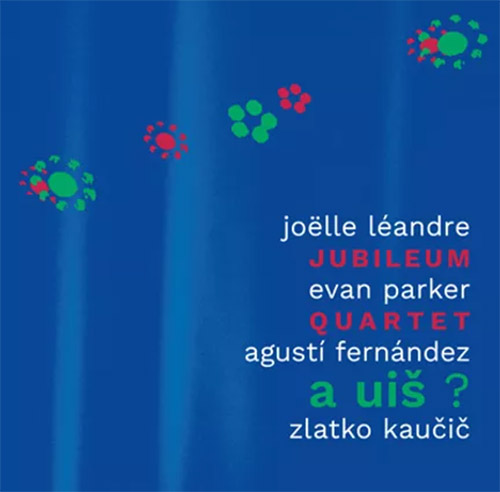
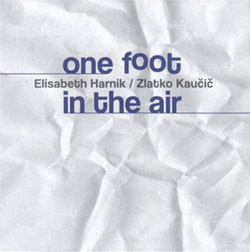


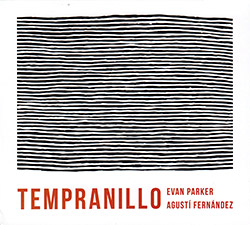
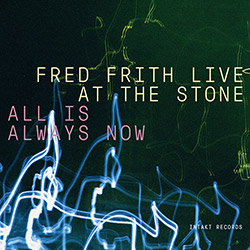
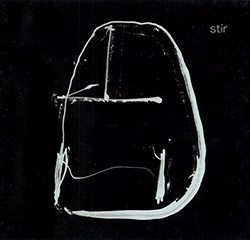

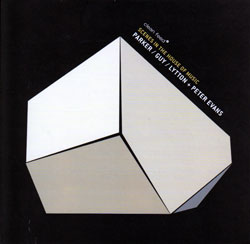
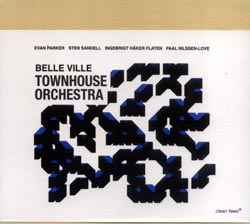
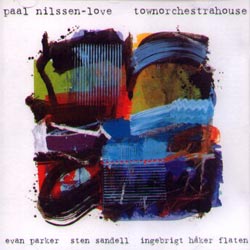
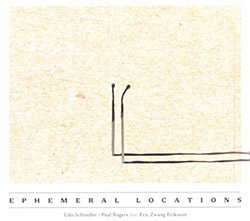



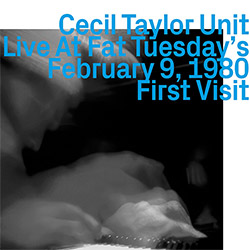
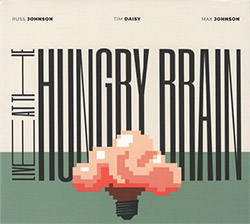
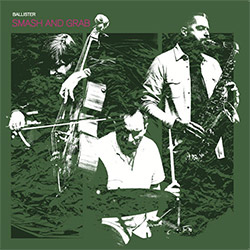
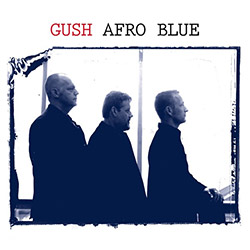
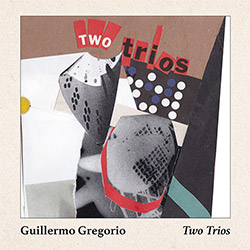
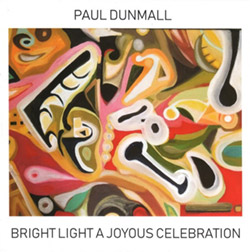



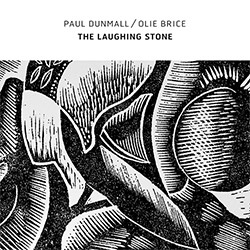
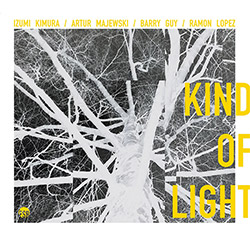




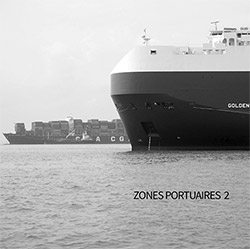
![111 (Michelle / Villamil): Live at Opus 40 [CASSETTE]](https://www.teuthida.com/productImages/misc4/35986.jpg)
![del Pino, Francisco / Charlotte Mundy: The Sea [CASSETTE]](https://www.teuthida.com/productImages/misc4/35987.jpg)

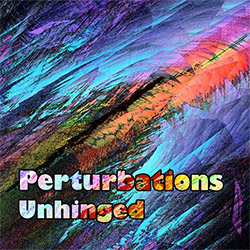

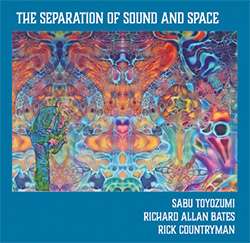
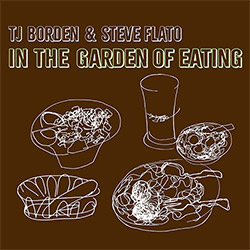

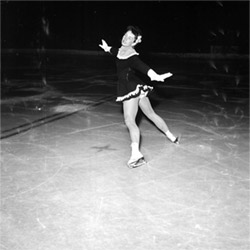
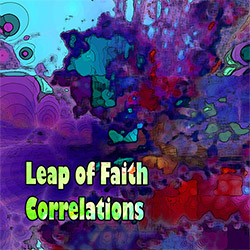

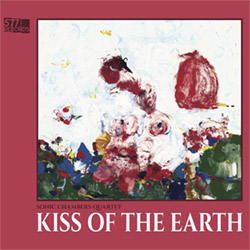

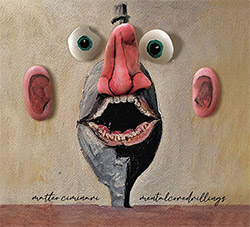
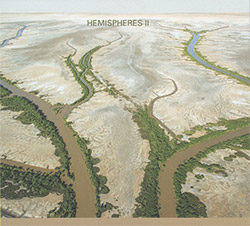
![Niblock, Phill / Anna Clementi / Thomas Stern: Zound Delta 2 [VINYL]](https://www.teuthida.com/productImages/misc4/34623.jpg)
![Yoko, Ono / The Great Learning Orchestra: Selected Recordings From Grapefruit [2 CDs]](https://www.teuthida.com/productImages/misc4/35841.jpg)

![Brotzmann, Peter / John Edwards / Steve Noble / Jason Adasiewicz: The Quartet [2 CDs]](https://www.teuthida.com/productImages/misc4/35975.jpg)
![Brotzmann, Peter / John Edwards / Steve Noble / Jason Adasiewicz: The Quartet [VINYL 2 LPs]](https://www.teuthida.com/productImages/misc4/35976.jpg)
![Thomas, Pat: The Solar Model of Ibn-Al Shatir [VINYL]](https://www.teuthida.com/productImages/misc4/36044.jpg)
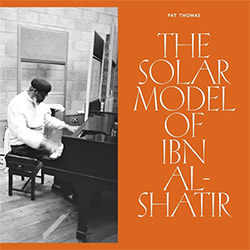



![Rodrigues, Ernesto / Nuno Torres / Guilherme Rodrigues: Whispers In The Moonlight - In Seven Movements [2CDs]](https://www.teuthida.com/productImages/misc4/35765.jpg)



![Cocks, Laura: FATHM [VINYL]](https://www.teuthida.com/productImages/misc4/36055.jpg)













![Schindler, Udo / Sandy Ewen / Damon Smith: Munich Sound Studies Vols. 4, 5 & 6 [3 CDs]](https://www.teuthida.com/productImages/misc4/35966.jpg)
![Turbulence Orchestra & Sub-Units: Smear Out the Difficulties (Double Live) [2 CDs]](https://www.teuthida.com/productImages/misc4/36048.jpg)

![Myers, David Lee : Tin Drop Tear [BOOK w/ DOWNLOAD]](https://www.teuthida.com/productImages/misc4/36030.jpg)

![Ackerley / Prymek / Turner: All Hope With Sleeping Minds [CASSETTE]](https://www.teuthida.com/productImages/misc4/35950.jpg)








![Olencki, Weston : Pearls Ground Down To Powder [VINYL]](https://www.teuthida.com/productImages/misc4/35956.jpg)
![Myers, David Lee: Oculus [2CDs]](https://www.teuthida.com/productImages/misc4/35857.jpg)


![dustsceawung: dustsceawung [CASSETTE w/ Download]](https://www.teuthida.com/productImages/misc4/35753.jpg)




![Halls of the Machine: Atmospheres For Lovers And Sleepers [CASSETTE w/ DOWNLOAD]](https://www.teuthida.com/productImages/misc4/35806.jpg)











![Zorn, John / JACK Quartet: The Complete String Quartets [2 CDs]](https://www.teuthida.com/productImages/misc4/35609.jpg)

![Lonsdale, Eden: Dawnings [2 CDs]](https://www.teuthida.com/productImages/misc4/35480.jpg)







![Sanna, Claudio: Compositori Sardi Contemporanei II [2 CDs]](https://www.teuthida.com/productImages/misc4/35317.jpg)







![Zurria, Manuel: Fame di Vento [3 CDs]](https://www.teuthida.com/productImages/misc4/35167.jpg)

![Electric Bird Noise / Derek Roddy: 8-10-22 [CD EP]](https://www.teuthida.com/productImages/misc4/35970.jpg)








![Elephant9 : Mythical River [VINYL]](https://www.teuthida.com/productImages/misc4/34624.jpg)



![Elephant9 with Terje Rypdal: Catching Fire [VINYL 2 LPs]](https://www.teuthida.com/productImages/misc4/35355.jpg)
![Deerlady (Obomsawin, Mali / Magdalena Abrego): Greatest Hits [VINYL]](https://www.teuthida.com/productImages/misc4/34876.jpg)







![Surplus 1980: Illusion of Consistency [CD]](https://www.teuthida.com/productImages/misc4/35069.jpg)
![Staiano, Moe: Away Towards the Light [VINYL + DOWNLOAD]](https://www.teuthida.com/productImages/misc4/35037.jpg)



![Caveira (Gomes / Sousa / Abras / Ferrandini): Ficar Vivo [VINYL]](https://www.teuthida.com/productImages/misc4/34643.jpg)
![Coley, Byron: Dating Tips for Touring Bands [VINYL]](https://www.teuthida.com/productImages/misc4/17906.jpg)

![Lost Kisses: My Life is Sad & Funny [DVD]](https://www.teuthida.com/productImages/misc4/lostKissesDVD.jpg)